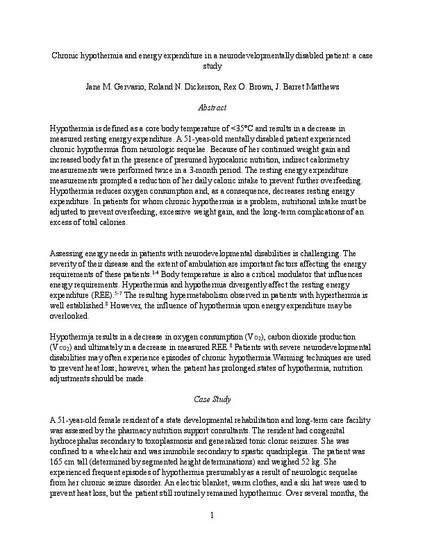
Hypothermia is defined as a core body temperature of <35°C and results in a decrease in measured resting energy expenditure. A 51-year-old mentally disabled patient experienced chronic hypothermia from neurologic sequelae. Because of her continued weight gain and increased body fat in the presence of presumed hypocaloric nutrition, indirect calorimetry measurements were performed twice in a 3-month period. The resting energy expenditure measurements prompted a reduction of her daily caloric intake to prevent further overfeeding. Hypothermia reduces oxygen consumption and, as a consequence, decreases resting energy expenditure. In patients for whom chronic hypothermia is a problem, nutritional intake must be adjusted to prevent overfeeding, excessive weight gain, and the long-term complications of an excess of total calories.
This is a post-print version of this article. The version of record is available at SAGE Journals.
Available at: http://works.bepress.com/jane_gervasio/15/
